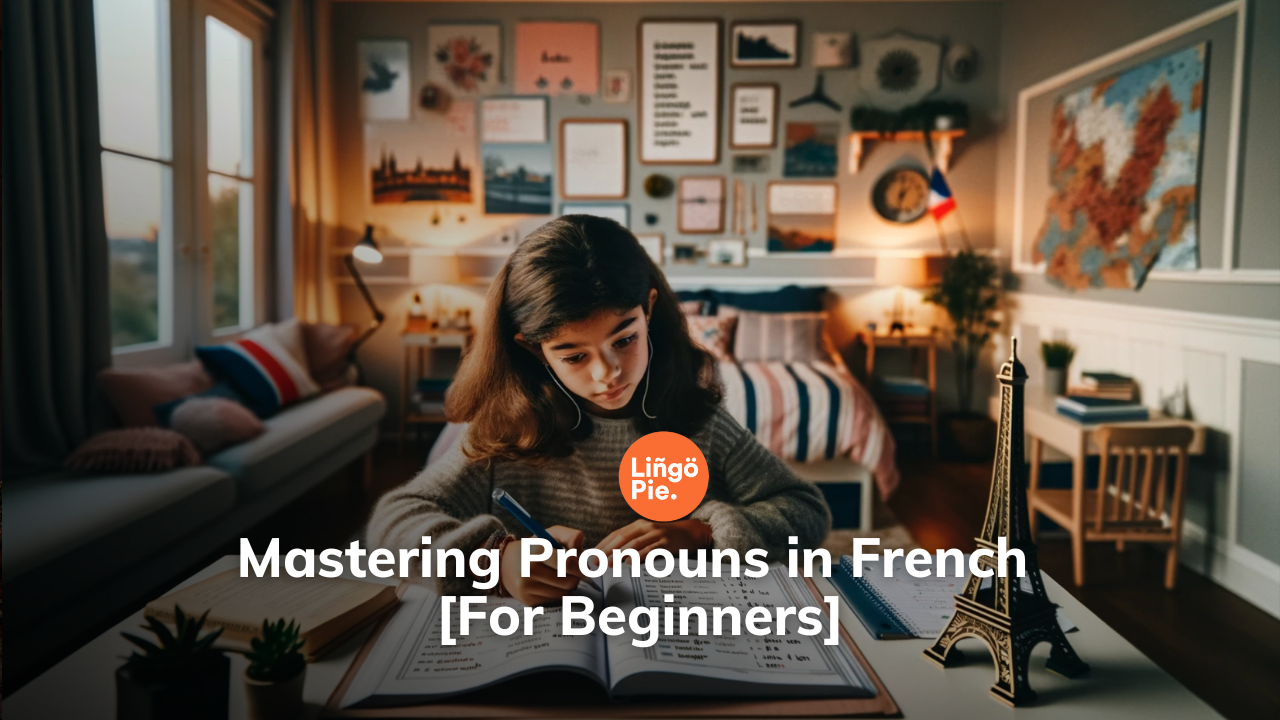The French language has earned its reputation as a language of romance and diplomacy.
Spoken by diplomats and cherished by enthusiasts worldwide, French is undoubtedly a captivating language. However, beneath its charm lies a challenge: the intricate world of French tongue twisters.
These linguistic hurdles, though insane, are crucial for language learners. Mastering them enhances pronunciation, refines speaking skills, and immerses learners in the nuances of the French language.
In this article, we unveil 13 insane French tongue twisters, offering an entertaining yet educational journey for those seeking to elevate their French language skills.
Table of Contents
- Why You Should Learn French Tongue Twisters
- 1. "Si je suis ce"
- 2. "Que je suis"
- 3. "Je suis ce"
- 4. "L'escroc ne le croque"
- 5. "Chante sa chanson"
- 6. "Tu te tues"
- 7. "Ce casque se cassent"
- 8. "Ton tonton sera tondu"
- 9. "J'ai tant de tantes"
- 10. "Satan ta femme t'attend"
- FAQs
- Summing up
Why You Should Learn French Tongue Twisters
Think of tongue twisters as linguistic workouts. They help you to hone pronunciation, and fostering familiarity with the intricate sounds of a language. But in addition to that, they’re just quite fun!
For French learners, learning tongue twisters can help to master the nuances of pronunciation and rhythm in French.
As you continue your journey to speak French fluently, embrace tongue twisters and use them as a key strategy to overcome pronunciation hurdles. By doing so, you’ll build confidence and develop your ability to express yourself in the French language.
1. "Si je suis ce"
How it's Pronounced: See zhuh swee suh
What it Means: If I am this
Why You Should Learn it: This twister is excellent for mastering French vowel sounds, refining pronunciation, and enhancing fluency in expressing conditional statements.
Fun Fact: This tongue twister may seem simple, but it conceals a linguistic challenge. French learners will discover the importance of mastering vowel sounds, especially the subtle nuances that distinguish them.
As you tackle "Si je suis ce," you're not just saying words – you're sculpting your French pronunciation, creating a foundation for more complex language skills.
2. "Que je suis"
How it's Pronounced: Kuh zhuh swee
What it Means: That I am
Why You Should Learn it: Practice the elusive French "que" sound, improve articulation, and focus on the unique cadence of the language.
Fun Fact: Learning this tongue twister isn't just about mastering sounds; it's a gateway to understanding the rhythmic flow of French.
3. "Je suis ce"
How it's Pronounced: Zhuh swee suh
What it Means: I am this
Why You Should Learn it: Reinforce the connection between words, and grasp subtle variations in French sounds.
Fun Fact: "Je suis ce" invites learners to explore the art of connection in French. As you repeat this twister, you're forging linguistic links between words, an essential skill for fluid communication. The subtle variations in sounds act as stepping stones, guiding you toward a deeper understanding of French phonetics.
Read Also:



4. "L'escroc ne le croque"
How it's Pronounced: Leh-skrohk nuh luh krohk
What it Means: The crook doesn't crunch it
Why You Should Learn it: Challenge consonant combinations, enhance pronunciation precision, and improve overall French language skills.
Fun Fact: Beyond its playful sound, "L'escroc ne le croque" conceals a lesson in consonant combinations.
5. "Chante sa chanson"
How it's Pronounced: Shahnt sah shahn-sohn
What it Means: Sing your song
Why You Should Learn it: Perfect your nasal vowel sounds and rhythm, common elements in French pronunciation.
Fun Fact: "Chante sa chanson" showcases the musicality of French, emphasizing nasal vowel sounds.
6. "Tu te tues"
How it's Pronounced: Too tuh tew
What it Means: You kill yourself
Why You Should Learn it: Tackle liaison (linking) between words, a crucial aspect of French pronunciation.
Fun Fact: "Tu te tues" provides a gateway to learning personal pronouns in French.
7. "Ce casque se cassent"
How it's Pronounced: Seh kahsk suh kahss
What it Means: This helmet is breaking
Why You Should Learn it: Navigate the challenging combination of "ce" and "se" sounds.
Fun Fact: This French tongue twister navigates the delicate balance between "ce" and "se".
8. "Ton tonton sera tondu"
How it's Pronounced: Tohn tohn-tohn seh-rah tohn-doo
What it Means: Your uncle will be shorn
Why You Should Learn it: This French tongue twisters provides a gateway to mastering the future tense.
Fun Fact: "Ton tonton sera tondu" introduces learners to the whimsical world of French homophones.
9. "Trois tortues trottaient sur"
How it's Pronounced: Twah tor-too troh-tay soo
What it Means: Three turtles were trotting on
Why You Should Learn it: Enhance your pronunciation of the French ‘r’.
Fun Fact: This French tongue twister provides a gateway to learning the ‘they’ form in the present tense.
10. "Satan, ta femme t'attend"
How it's Pronounced: Sa-tahn tah fem tah-tahn
What it Means: Satan, your wife is waiting for you
Why You Should Learn it: There are few cases when this French tongue twister can be used appropriately. But it’s fun for a dinner party, right?
Fun Fact: "Satan ta femme t'attend" introduces a touch of humor to the challenge of liaison in French.
FAQs
In this section, we provide answers to questions relating to tongue twisters in French.
What is the French tongue twister vers?
"Vers" refers to a line of poetry in French, but it's also a play on words in tongue twisters. An example is "Si je suis ce que je suis et si je suis ce que je pense, je ne peux pas être un vers, mais un ver."
What is the number 1 hardest tongue twister?
While opinions vary, "Pad kid poured curd pulled cod" is often considered one of the most challenging tongue twisters in English. In French, "Je suis ce que je suis" presents difficulty with its repetitive sounds, making it a formidable challenge for learners.
What is the tongue twister in French with the R?
One of the most challenging French tongue twisters with the prominent "R" sound is "Trois tortues trottaient sur trois trottoirs très étroits," where learners grapple with rolling Rs. Mastering this twister contributes to improved pronunciation and fluency for non-native speakers.
What is a hard French sentence to say?
A challenging French sentence is "Les sangsues sont sans succès" (The leeches are unsuccessful), demanding precision with the "s" sounds. This phrase serves as a linguistic workout, testing articulation and providing a fun challenge for learners of all levels.
How can I teach myself French?
Embrace French self-learning with online resources, language apps, and interactive courses. Practice regularly, immerse yourself in French media, and engage with native French speakers. Incorporate fun French tongue twisters into your routine for an entertaining way to improve pronunciation.
Is it difficult to learn French?
While every learner's experience varies, French can pose challenges due to its unique sounds and grammar. However, consistent practice, exposure to the language through media, and incorporating fun French tongue twisters make the learning journey enjoyable and rewarding.
How can I learn French for beginners?
Start with basics like the French alphabet, common phrases, and essential vocabulary. Use beginner-friendly language apps, join language exchange programs, and practice with native French speakers. Integrate engaging activities like fun French tongue twisters for a lively introduction to the language.
Related:

How can I speak French fluently in 30 days?
Achieving fluency in 30 days is ambitious, but immerse yourself in French daily. Practice with native speakers, focus on common phrases, and use language apps for structured learning. While fluency may take longer, consistent efforts, including fun French tongue twisters, expedite progress.
Related:


Summing Up: Insane But Useful French Tongue Twisters
Delving into the world of French tongue twisters is not just a linguistic challenge; it's a fun way to master the intricacies of the language.
Aspiring French speakers, whether beginners or intermediate learners, can reap substantial benefits from incorporating these tongue twisters into their language-learning journey.
From refining pronunciation to gaining confidence in speaking skills, these exercises are indispensable. So, as you dream of strolling through the streets of Paris or conversing with native speakers, make sure to embrace the insanity of French tongue twisters.
Your language-learning adventure will be richer, and your ability to navigate the beautiful French language will reach new heights.
And where better to find some more examples than Lingopie? Lingopie is a language learning platform that allows you to watch French TV shows and movies with the aid of language-learning tools.
Sign up for a free trial today, and start watching these tongue twisters, and plenty more, in context. Bonne chance!










